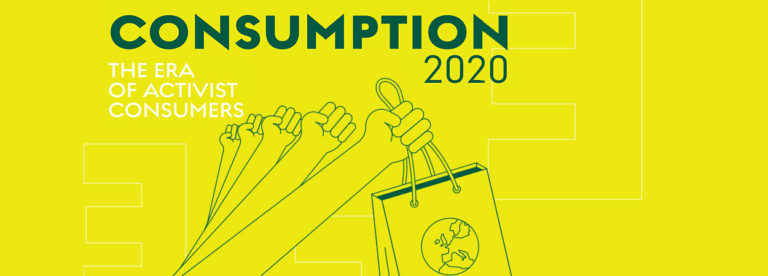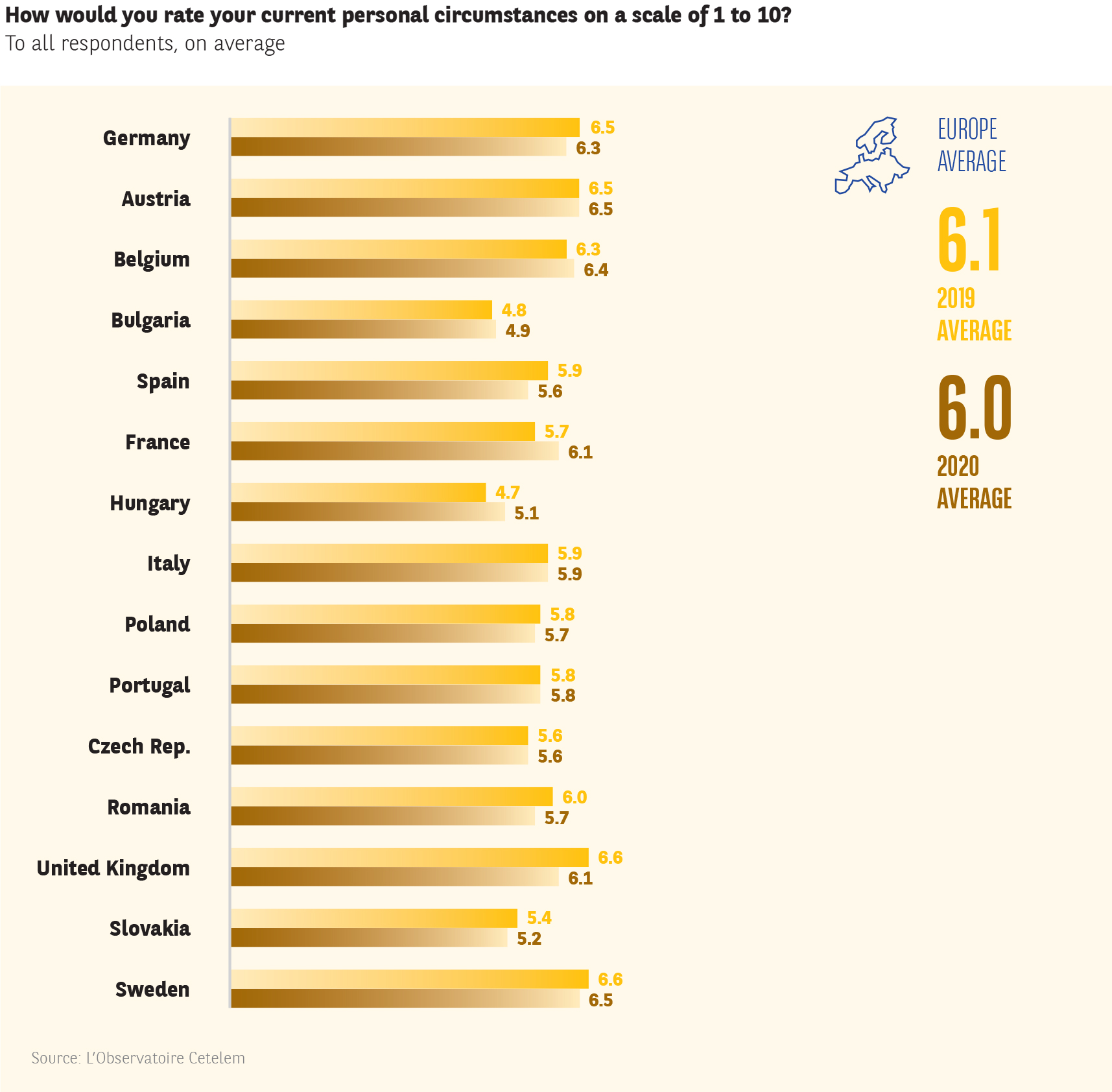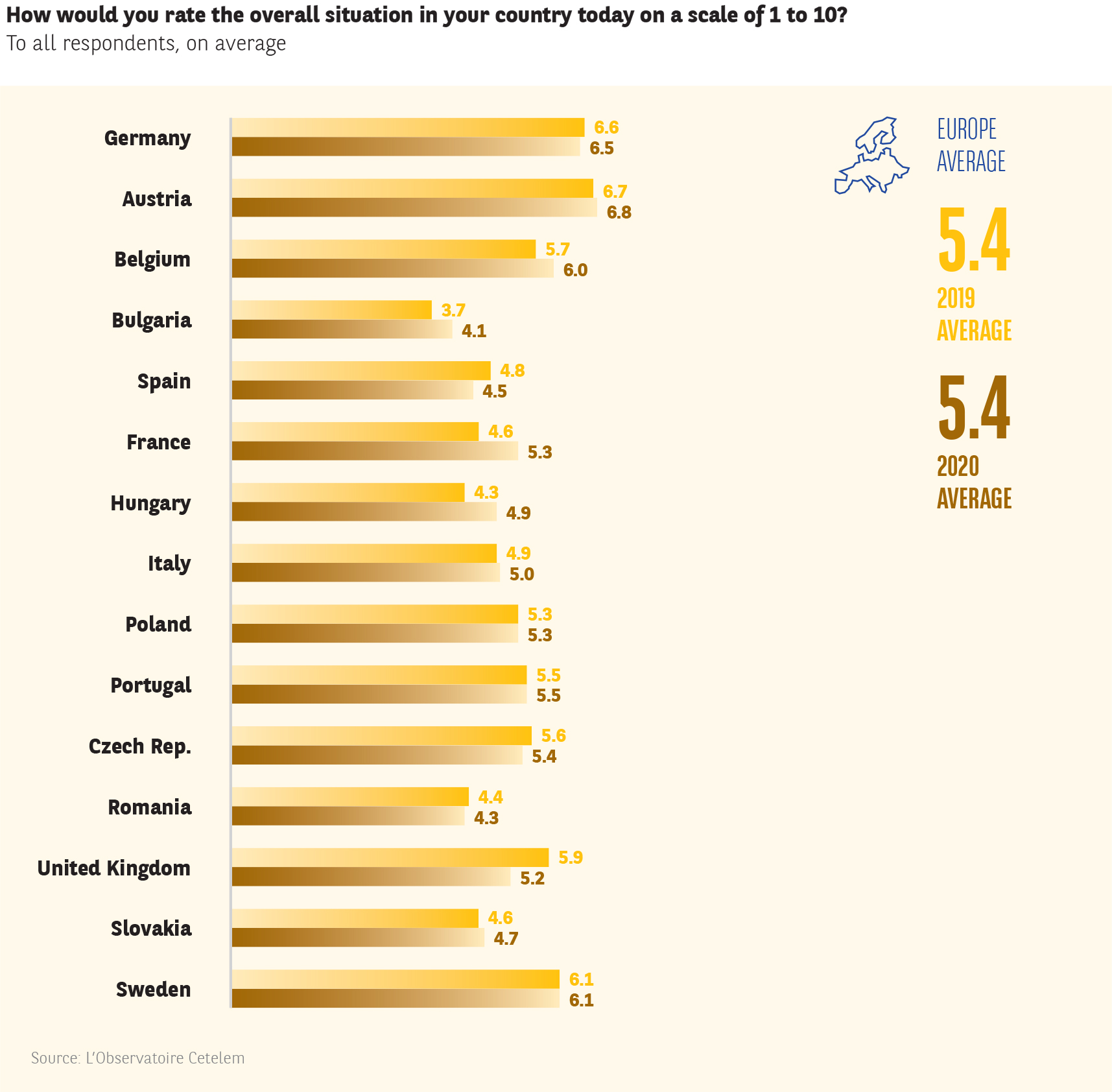Perceptions of personal and general circumstances remain stable


INDIVIDUALS ARE FAIRING BETTER THAN COUNTRIES
This is a recurring theme of L’Observatoire Cetelem, one that returns year after year. Europeans always have a more positive opinion of their personal circumstances than they do of the situation in their country.
With an average score of 6 out of 10, those questioned for the purposes of this 2020 survey view their circumstances as being both positive and stable compared with the previous year (-0.1 points) (Fig. 1). Their opinion of the overall national situation is even more stable, given that it is unchanged with respect to 2019 (Fig. 2).
FIG. 1 :
FIG. 2 :
FRANCE AND THE UNITED KINGDOM: CONTRASTING SITUATIONS
Two countries stand apart due to the change in the scores they assign to their respective situations. Whether it be in terms of personal or overall circumstances, the French are the most likely to consider that the situation has improved (+0.4 and +0.8 respectively). It should be pointed out that the previous survey was conducted at the beginning of the “yellow vest” crisis. This year’s results appear to indicate a return to normality, with scores identical to those recorded in 2018. the gradual fading of the protests, the control regained over public order and the budgetary windfalls announced to bolster purchasing power are all factors that may have contributed to this adjustment.
Conversely, the mood among Britons has experienced a downturn. They believe their personal circumstances have worsened (-0.5 points), but not as much as the general situation in their country (-0.7 points).
It doesn’t take a genius to understand how the repeated postponement of Brexit might have had a negative impact and but a dent in the phlegmatic attitude for which they are renowned. Having previously been among the most positive European nations, the UK
has dropped to the middle of the pack in terms of personal circumstances, and even posts a slightly below average score when it comes to the overall situation.
CONFLICTING VIEWPOINTS
Outside of France and the United Kingdom, a number of countries have seen their scores change significantly. Like the French, the Hungarians are now more optimistic about their personal circumstances (+0.4 points), with a score that has crept above the overall average. Like in Britain, there is rising pessimism among the Romanians, the Spanish (-0.3 points), the Slovaks and the Germans (-0.2 points). Once again, these declining scores can be explained by political uncertainty and, in Germany’s case, the first shoots of concern regarding the economy.
The Brits are joined in their negative perception of the general situation in their country by the Spanish, Romanians and Germans (-0.3, -0.1 and -0.1), who seem equally tentative. in Spain, the Catalonia crisis and repeated elections have affected the mood to such an extent that the situation in the country is among the worst perceived in Europe.
It is also important to underline that, while doubt is creeping into the minds of Germans, they remain resolutely positive, as do the Austrians, who lead both of these rankings, and the ever-positive Swedes.


